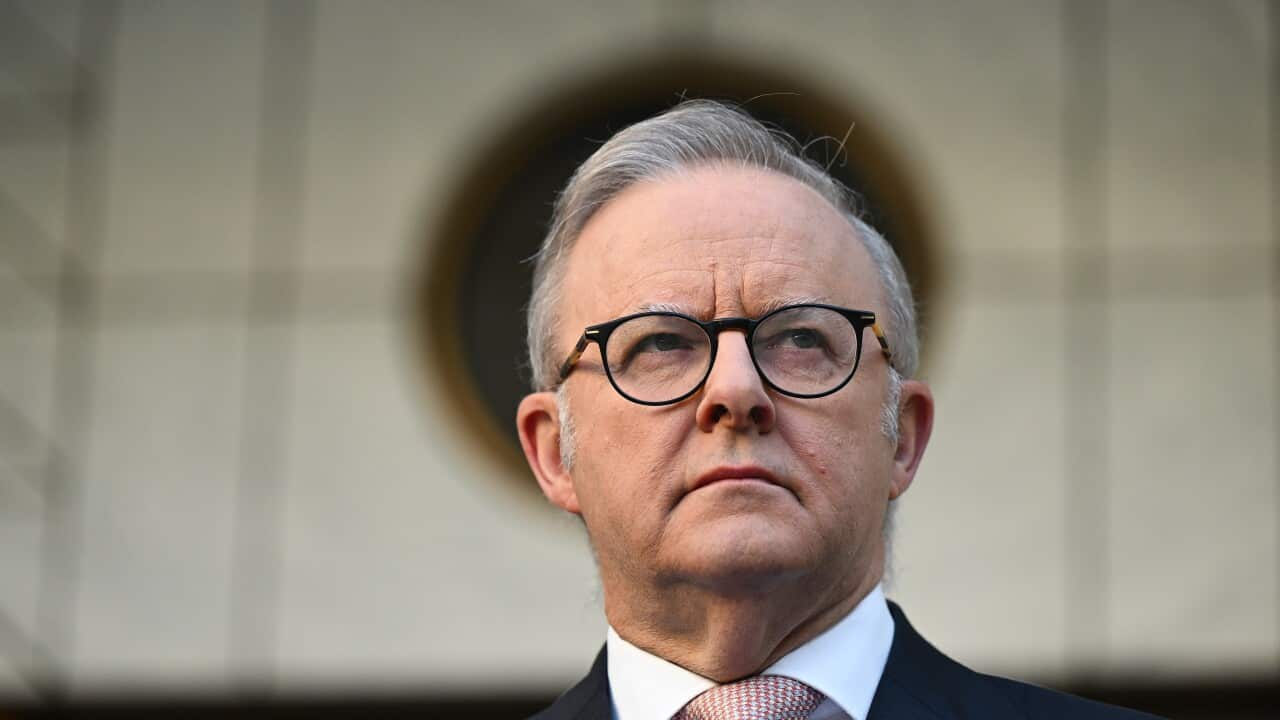On Wednesday, Prime Minister Scott Morrison announced that Australia would place a travel ban on people arriving from Italy.
The travel ban, which came into effect at 6pm on Wednesday, applies to all travellers from Italy except for Australian citizens or permanent residents - who need to self-isolate for 14 days upon entering Australia.
RELATED: Australia to extend coronavirus travel ban to Italy, Scott Morrison announces
Highlights
- The WHO says restricting the movement of people during a public health emergency has often proven ineffective
- Australia has placed a travel ban on passengers arriving from China, South Korea, Iran and Italy
- The WHO says border control measures such as health screening work only if they are rolled out with other measures including effectively communicating ways to avoid the spread of the virus
Travel bans 'are often ineffective'
Cristiana Salvi, External Relations Manager Health Emergencies and Communicable Diseases at World Health Organisation's Regional Office for Europe, says restricting the movement of people during a public health emergency has often proven to be ineffective and may divert resources from other more efficient forms of interventions.
"WHO has not recommended travel restrictions with respect to the COVID-19 epidemic as we believe it's important that measures taken by each country do not impact too strongly on their socio-economic outlook," Ms Salvi told SBS Italian.

"We believe that resources should be committed foremost to the identification and management of coronavirus cases...It's important for a country to carefully plan how to manage its financial and human resources," she explained.
The WHO says several countries that placed travel restrictions on passengers arriving from China and other affected countries are also reporting cases of coronavirus infections.
Border controls
Before the Australian Government announced a ban on arrivals from Italy, it implemented border checks, involving taking passengers' temperatures and having health experts interviewing travellers at border control.
Cristiana Salvi says border controls have proved successful in detecting "a few" cases of coronavirus in the early stages.
But she says these controls can be successful only if they are rolled out together with a series of other measures.
"A few cases of coronavirus were found in the early stages thanks to border controls so the WHO has recommended that countries evaluate the situation and possibly introduce border controls but [they need to be] accompanied by other measures, such as a well rolled-out communication plan telling people what simple measures they can take to avoid the spread of the virus".

In Australia, travel bans are currently in place for arrivals from Italy, China, South Korea and Iran.
In regards to arrivals from other countries, the government is relying on health screening to control the spread of the virus.
According to the WHO, "temperature screening alone, at exit or entry, is not an effective way to stop the international spread, since infected individuals may be in incubation period, may not express apparent symptoms early on in the course of the disease, or may dissimulate fever through the use of antipyretics," it said on its website.
"In addition, such measures require substantial investments for what may bear little benefits," it added.
"It is more effective to provide prevention recommendation messages to travellers and to collect health declarations at arrival, with travellers’ contact details, to allow for a proper risk assessment and a possible contact tracing of incoming travellers," WHO recommended.
RELATED: Italy PM toughens virus lockdown as WHO declares coronavirus a pandemic
On Thursday, Italy's Prime Minister Giuseppe Conte has added new restrictions to the lockdown imposed to fight the coronavirus after figures showed Italy posting the highest daily increase in deaths of any country since the outbreak began.
In a televised address to the nation on Wednesday, Mr Conte said all shops would be shuttered except supermarkets, food stores and chemists, and companies must close all their departments that are not essential to production.
According to Cristiana Salvi, the way the Italian government is handling the crisis is showing that people's health is clearly the priority.
"Italy is putting people's health before anything else, regardless of the impact on the economy", she said.
"The government has decided to prioritise people's health and to act strongly during this crisis".
"What they really need now is a well-coordinated plan...This is the first time that a country goes in total lockdown".




